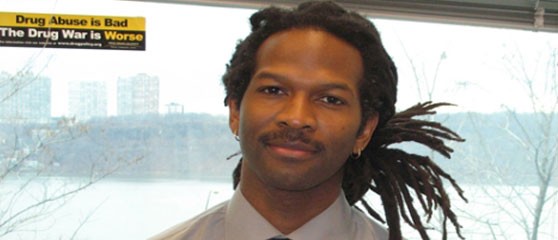“I have to make sure I don't engage in conversations with people who don't abide by the rules of evidence.” – Dr. Carl Hart. PhD.
Part memoir, part big-idea science book, part drug policy wishbook, Dr. Carl Hart’s book High Price will throw a monkey wrench into everything you’ve ever been told about drugs or addiction.
Young and sporty, Carl Hart, fresh from a stint in the US Air Force overseas, came back to his American roots in the 1980s with one goal in mind: To save his people from crack thorugh curing addiction.
The hype at the time over the evilness of crack was as crazy as Hart's dream. Crack will get you addicted after one puff, they said. Crack is worse than heroin. Crack is responsible for a whole generation of crack babies. Crack will turn you into a homicidal zombie.
A slightly different version of this article was first published by AQPSUD in their magazine L'Injecteur.
Oddly enough, the truth was even more staggering: crack put every fifth African American man in jail even though it was mostly smoked by white people. And crack offenses were punished 100 times harsher than powder cocaine even though they are the same drug! (Today, it’s 18 times worse).
But back to Hart's goal. Cure addiction?
Hart, an acclaimed neuroscientist, toiled through 10 years of research with a handful of drug trials. Conclusion? Medication can’t cure addiction. With all the advances made during the so-called ‘’decade of the brain’’* including great leaps in neurotransmitter science where drugs work their magic, Hart concluded what others suspected: As unpredictable and problematic as psycho-social rehab was, it was the most effective way of curbing problematic drug use. Even with its absurdly low success rate.
Along with this realization however, came an eye-opening discovery: Drug policy was completely out of sync with science. That conclusion morphed into a crusade and he started speaking out against anti-drug propaganda that ignored evidenced-based research.
And he hasn’t stopped since.
Although addiction is often emotional and heart-wrenching, Hart insists that science should dictate policy, not fear or misinformation.
For instance, what no one seems to be saying and what Hart will say at every opportunity is that most heroin overdose deaths are caused by users using smack with a sedative like Xanax® or Valium® or, more commonly, beer and liquor. Case in point: A friend of mine died of an OD and while everyone pointed their finger at the fentanyl hysteria, his friends (and his death certificate) were clear that his alcoholism combined with heroin is what did him in.
People need to know that shooting smack when you’re already drunk can kill you.
Another chip on Hart’s shoulder? Why does a country obsessed with regulating everything not support a way of analyzing street drugs so users at least know what they’re swallowing, sniffing or injecting? A powerful harm reduction measure is lost, not only in acute criminalization but in the therapeutic community’s obsession on abstinence spun by 12 steppers and all-or-nothing mentalities.
Hart, definitely a cool cat when you meet him, does a lot more than pay lip service to a cool liberal agenda. He is, after all, a man of science, and he can back up his ideas with facts, something mostly missing from drug policy.
"(Recreational drugs) enhance the human experience and function," he says, "as well as treat a wide range of illnesses and conditions like psychotic episodes, anxiety and sleep disorders."
So what’s next for this revolutionary scientist and crusader? "In my new book, I’m going to argue that more people should be using drugs."
Seriously?
*The Decade of the Brain was a designation for 1990-1999 by U.S. president George H. W. Bush as part of a larger effort involving the National Institutes of Health "to enhance public awareness of the benefits to be derived from brain research".


